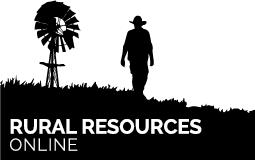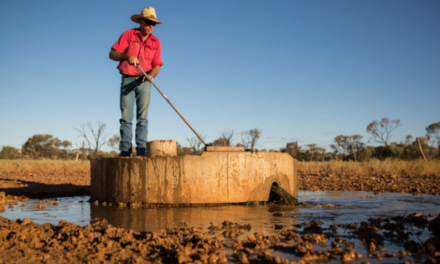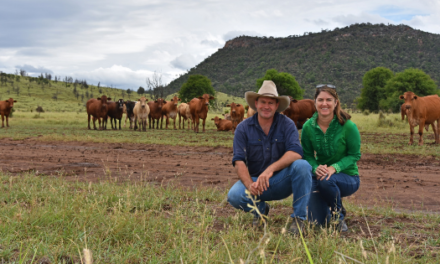Wayne Dwyer said “if you change the way you at things, the things you look at change”. Albert Einstein discussed the need to decide if we want to live in a friendly universe or a hostile universe.
So is it time to change the way we look at succession planning for farming businesses?
Personally, I think a name change would be a great start.
I don’t know anyone who associates succession planning with positive emotions.
But if you think about it, succession planning is really about how we approach managing change within our business structure and family.
Then throw in the ‘f’ word occasionally and you immediately create negative emotions that constrict thinking and impact badly on discussions.
The problem with being fair
The ‘f’ word in question is that four lettered one that creates an emotional response every time it’s mentioned.
I have heard many times ‘you can’t make things equal, but you can make them fair’ when deciding how assets and the management of a business will be transferred to the next generation.
Although that sounds comforting, it does create it’s own challenges.
But by asking ‘is that fair’, or stating ‘that’s not fair’, or questioning ‘how is that fair’, you will never have all parties happy with the outcome.
This is because individual perspectives create different responses.
At some point key decisions must be made. Hopefully this happens after much discussion and with full transparency of the process.
Individual accountability is essential
So how can we better manage change?
At the end of the day you are responsible for your own behaviour. Multiple generations of individuals cannot expect to have the same perspective. You are shaped by your surroundings, upbringing and life experiences. The dynamics are even more complicated when a marriage occurs and new perspective joins the family (and business).
Apparently, Aretha Franklin died without a clearly stated will. As a result, her heirs will waste time, money and frustration resolving her estate.
If you are thinking Aretha was naive (a will doesn’t make it more likely that you will die) and selfish you are reacting from a practical viewpoint.
Because if you’re born, it pays to plan on dying.
The problem however, is emotions are also involved. Deciding who gets what and when is complex. This is especially true when your identity is strongly aligned with what you do rather than who you are.
According to the Carnegie Institute of Technology ‘85% of your financial success is due to your personality and ability to communicate, negotiate and lead. Shockingly, only 15% is due to technical knowledge’
So what does this mean in terms of being a good change manager?
At a recent workshop on communication I was talking to a friend about succession planning involving farming families. During the conversation we covered topics such as the need for control, anxiety over expectations, asset distribution and family relationships.
Simply mentioning ‘succession planning’ it seems causes people to slightly recoil, roll their eyes and take a breath.
It’s time to plan on finishing well
The benefits of planning are well known.
The ability to organise staff, achieve goals and improve efficiencies reassures team members their efforts are on track . At a strategic level the ability to analyse, assess and prepare for the future gives clarity and focus.
For a family, planning gives comfort and creates cohesion.
Everyone’s time on earth is limited. It pays to talk, plan and make decisions.
Most importantly you need to communicate the decision making process.
If you’re in business, you should discuss your exit strategy.
If you have family you will know that everyone has expectations. How you choose to manage those expectations form part of your legacy.
Why only part of it?
Because you cannot dictate your legacy. It will be determined and talked about after you are no longer there to contribute. Others will decide what was and wasn’t fair.
Ultimately, people will remember not only your actions, but how you made them feel.
You only hurt the ones you love
I have spoken to people who tell me they don’t like conflict so they don’t take sides.
The reality of this position is that in doing nothing you have made a choice and you are effectively taking a side.
There are many ways to plan for and manage change. By remembering people are the greatest asset in any business you can start by valuing the wisdom of the older generation whilst acknowledging the potential in others.
But first you must identify where you currently stand on the issue of change.
I regularly hear matriarchs speak of their desire for harmonious relationships. All relationships need commitment, effort and, at times, involve difficult conversations.
How willing are you to make the commitment and put in the necessary effort?
The need for control
20 years ago marrying into a rural farming family meant a complete change of career. Employment options were none existent due to geographical isolation. Family assets were controlled by the older generations and decisions were made by those in control and shared later with other family members.
Financial records were not disclosed as it was no-one else’s business. New family members were welcomed but not encouraged to ask questions relating to operational matters.
Budgets were compiled for bank managers and financial literacy left to accountants. Across the board benchmarking was beginning to interest producers, but for many the thought of sharing personal business information prevented them from participating in programs.
Conservative tendencies meant sensitive topics were not openly discussed and assistance from external professionals were used for non-production related matters.
Tradition is strong in the bush. When in doubt or feeling threatened the fallback position is to go with established beliefs.
So where has this left us…
20 years on some would argue not much has changed.
But we do all know of examples of well run, cohesive rural family businesses.
Change management starts with you
How often do you try something different? Would you say your response to a situation is generally done on autopilot?
Fortunately, once desired, the possibility of being a positive change manager within your business is limited predominantly by your ability to be more considered and sensitive.
Yes, you may need to read that sentence again.
There is an important need to be able to separate the family business from the business of family when relatives work together. Progressive businesses are writing constitutions, charters and other forms of operating rules. They have learnt that people appreciate the opportunity to feel valued and contribute on a level playing field.
Modern business practices are essential when operating a future focussed, viable intergenerational agricultural enterprise.
Meetings that work to an agenda, have minutes taken and are distributed to attendees afterwards should be standard practice. If you have only two team members then a diary entry is probably enough effort in terms of record keeping for general meetings.
But, when it comes to change management and strategic conversations such as succession planning, then a formal approach is necessary.
Change management is described as the process, tools and strategies used to manage the people side of change to achieve a required business outcome.
I read recently that 50% of all farms will sell in the next 10 years. I was also surprised to read 60% of farmers have no successor. The average age of farmers is 56, with 23% of them aged over 65.
Australia is losing its family farms at an alarming rate, with our numbers down to 86,000 from 157,000 in 2011.
The future is in your hands
If you are a leader then your job is not to take charge, but to look after those in your charge. Teams need an environment when they feel safe enough to be their best selves.
People need to be where it’s ok to be vulnerable, make mistakes and be rewarded for asking for help. When our children do the wrong thing they don’t want to be criticised, but rather, they need to hear ‘try again’.
This goes for grown up children.
Our individual needs don’t change, but often the timeline does.
If you haven’t got around to starting those important succession planning discussions you owe it to your family to do so.





